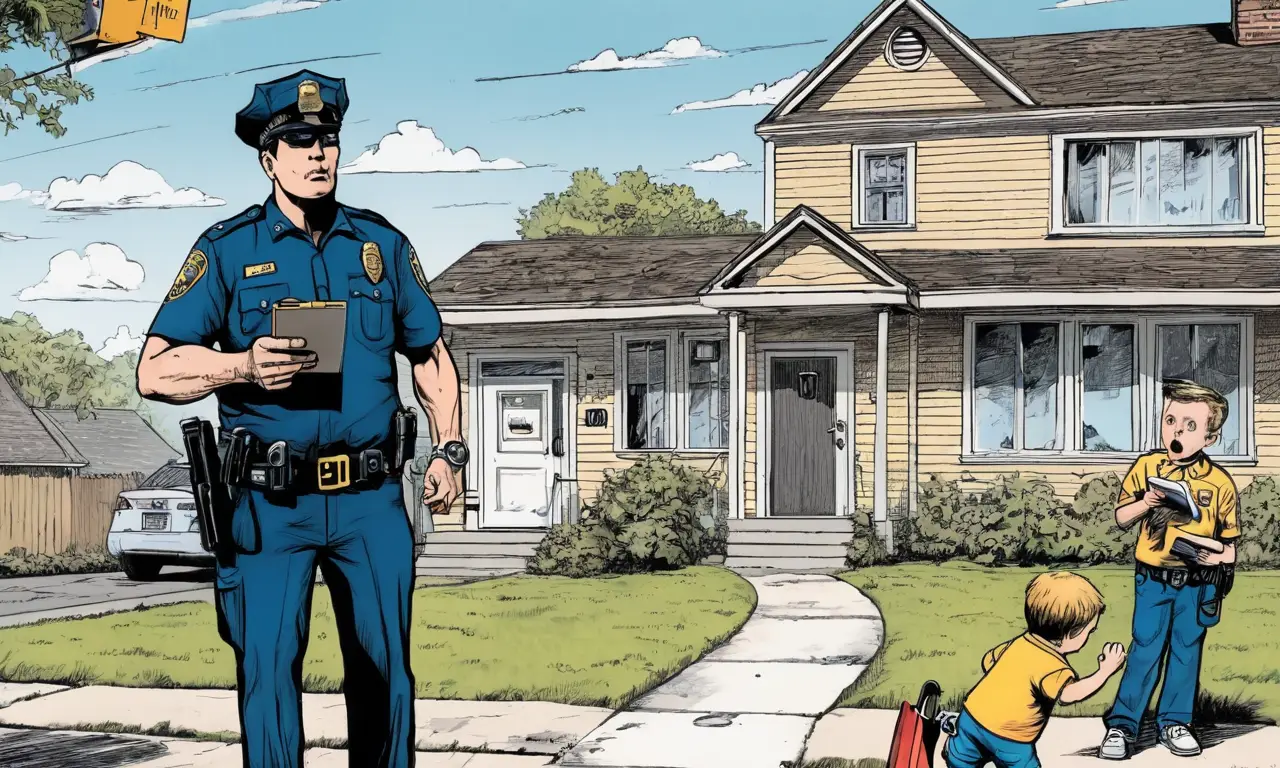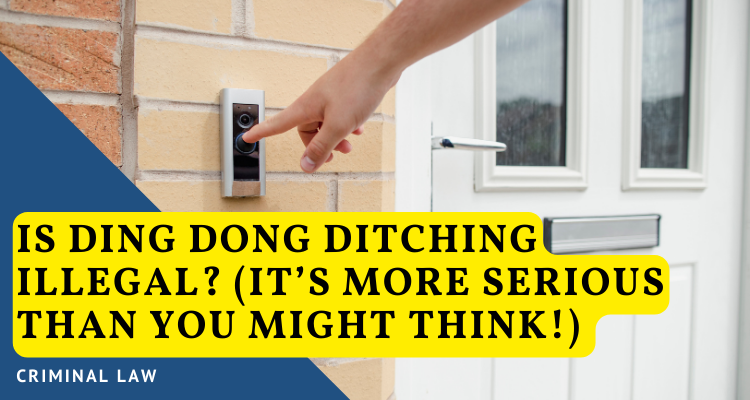Ding dong ditching, a seemingly harmless prank, can quickly escalate into a nuisance and even legal trouble. While some might view it as a lighthearted joke, the act of repeatedly ringing someone’s doorbell and fleeing can cause significant distress and disruption. Understanding the potential consequences of ding dong ditching and learning how to prevent it is crucial for maintaining peace and safety within communities.
This article will delve into the definition of ding dong ditching, explore its legal ramifications, and provide practical advice on reporting and preventing this disruptive behavior. We’ll examine relevant laws, discuss the role of law enforcement, and offer strategies for protecting yourself from unwanted doorbell intrusions.
Ding Dong Ditching Defined
Ding dong ditching is a prank where an individual rings someone’s doorbell or knocks on their door without intending to engage in conversation or interact with the resident. The perpetrator then quickly retreats before the homeowner can answer, leaving them startled and potentially confused. This act often involves groups of individuals who coordinate their efforts to maximize disruption and create a sense of unease.
While seemingly innocuous, ding dong ditching can have a significant impact on victims. It can cause anxiety, fear, and frustration, especially for elderly residents or those with medical conditions who may be startled by unexpected noises. Repeated incidents can lead to feelings of vulnerability and insecurity within one’s own home.
The prank can also disrupt daily routines and create unnecessary stress. Imagine being woken up in the middle of the night by a loud doorbell ringing only to find no one there, or having your work interrupted by repeated interruptions throughout the day. These disruptions can have a detrimental effect on both physical and mental well-being.
Legal Consequences of Ding Dong Ditching

The legal consequences of ding dong ditching vary depending on local ordinances and the specific circumstances surrounding the incident. While police may not always respond to minor occurrences, repeated offenses or those causing significant disturbance can result in warnings, citations, or even arrest.
It’s important to note that ding dong ditching can be considered harassment or disorderly conduct under many state laws. Harassment typically involves a pattern of unwanted and annoying behavior intended to cause distress or alarm. Disorderly conduct often refers to actions that disrupt the peace or create a public nuisance.
In some jurisdictions, ding dong ditching may also fall under the category of “trespassing” if the perpetrator enters someone’s property without permission. This can lead to more serious legal penalties, including fines and jail time.
Harassment and Disorderly Conduct Laws
Harassment laws are designed to protect individuals from unwanted and repeated contact that causes emotional distress or fear. Ding dong ditching can fall under this category if it involves a pattern of behavior directed at a specific individual or household with the intent to harass or intimidate.
Disorderly conduct laws aim to maintain public order and prevent disturbances that disrupt the peace. Repeated instances of ding dong ditching, especially those occurring late at night or in residential areas, can be considered disorderly conduct due to the noise and disruption they create.
These laws vary from state to state, so it’s essential to consult local ordinances to understand the specific regulations regarding harassment and disorderly conduct in your area.
Reporting Ding Dong Ditching to Police

If you are experiencing persistent ding dong ditching, it is important to report the incidents to your local law enforcement agency. Documenting each occurrence with details such as dates, times, descriptions of the perpetrators, and any witnesses can be helpful for police investigations.
When reporting the incident, provide clear and concise information about the nature of the prank, its frequency, and any potential harm it has caused. Be prepared to answer questions about your attempts to resolve the issue on your own, such as speaking with neighbors or contacting the perpetrators directly.
Remember that law enforcement agencies are there to assist you in resolving these types of issues. By reporting ding dong ditching, you can help create a safer and more peaceful environment for yourself and your community.
Preventing Ding Dong Ditching
While reporting incidents to police is crucial, taking proactive steps to prevent ding dong ditching can be equally effective. Consider implementing the following strategies:
Security Measures
- Install motion-activated lights around your property to deter potential pranksters.
- Consider installing a security camera system that captures footage of anyone approaching your door.
- Ensure your doors and windows are securely locked, even during the day.
Community Engagement
- Talk to your neighbors about the issue and encourage them to report any incidents they witness.
- Organize neighborhood watch programs to increase vigilance and deter criminal activity.
- Contact local authorities to inquire about community safety initiatives or resources available to address this type of nuisance.
Conclusion
Ding dong ditching, while seemingly harmless on the surface, can have significant negative consequences for victims and communities. Understanding the legal ramifications, reporting incidents to law enforcement, and implementing preventative measures are crucial steps in addressing this disruptive behavior. By working together, individuals, families, and communities can create a safer and more peaceful environment for everyone.



